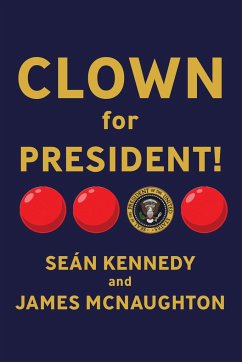Kennedy and McNaughton read Todd Phillips’ record-breaking Hollywood blockbuster Joker as an economic and political allegory of our times. It is a book full of dazzling insights into the malaise of contemporary capitalism. What could be more surprising than the cinematic presentation of the Joker as a key to solving our present economic and political predicament? Send In the Clowns! leads us precisely there. Grip this movie’s visual language, its authors insist, and we can also grasp a political grammar, available to all, that articulates a new, world-changing solidarity. The predicament Send In the Clowns! diagnoses is urgent: the way late capitalism ensures astonishing inequality, unleashing a backlash in conspiracy, violence, and authoritarianism. These pages map this unraveling onto the narrative of Joker. When the movie begins in 1981, neoliberal tides are shifting the sands: the rise of insecure work; the destabilizing of welfare; the explosion of racialized incarceration. A close reading of the film allows Kennedy and McNaughton to isolate and confront these phenomena. Send In the Clowns! shows how melodrama has become late capitalism’s preferred genre. It appears in neoliberal economic theory; in a media seduced by caricatured villainy; in state justifications for war. Melodrama allows demagogues to depict themselves as saviors and decry political opponents as criminals, threatening the foundations of democracy itself. The myth of the lone superhero has brought us to the brink of disaster. If we don’t want jokers for president, we must empower the clowns!
Bitte wählen Sie Ihr Anliegen aus.
Rechnungen
Retourenschein anfordern
Bestellstatus
Storno








